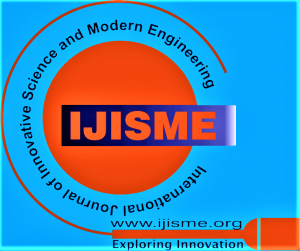Advancements in GitHub Automation and Workflow: A Comprehensive Exploration
Anurag Pindoriya1, Janki Velani2
1Anurag Pindoriya, Department of Computer Engineering, Darshan University, Rajkot (Gujrat), India.
2Janki Velani, Department of M.sc (IT), CVM University, Anand (Gujrat), India.
Manuscript received on 03 January 2024 | Revised Manuscript received on 25 January 2024 | Manuscript Accepted on 15 February 2024 | Manuscript published on 28 February 2024 | PP: 10-13 | Volume-12 Issue-2, February 2024 | Retrieval Number: 100.1/ijisme.B131112020224 | DOI: 10.35940/ijisme.B1311.12020224
Open Access | Editorial and Publishing Policies | Cite | Zenodo | OJS | Indexing and Abstracting
© The Authors. Blue Eyes Intelligence Engineering and Sciences Publication (BEIESP). This is an open access article under the CC-BY-NC-ND license (http://creativecommons.org/licenses/by-nc-nd/4.0/)
Abstract: The landscape of software development has been significantly transformed by the integration of automation and streamlined workflows, with GitHub emerging as a pivotal platform in this evolution. This research paper delves into the multifaceted realm of GitHub automation and workflow, investigating key aspects that contribute to enhanced efficiency, collaboration, and code quality in modern development practices. The paper begins by exploring the utilization of GitHub Actions for establishing robust Continuous Integration and Continuous Deployment (CI/CD) pipelines. Best practices for designing reliable workflows are discussed, along with insights into customizing workflows to suit diverse project requirements through the use of custom actions and templates. The automation of code reviews is scrutinized, with a focus on tools and practices that facilitate objective and efficient evaluation of code quality. The paper also investigates GitHub’s role in security automation, covering strategies for vulnerability detection and integration of security checks into the development lifecycle. Collaborative workflows on GitHub, including branch management, pull requests, and code reviews, are explored as pivotal components fostering teamwork. The integration of GitHub into DevOps practices is analyzed, showcasing its synergy with popular DevOps tools and platforms. As a forward-looking endeavor, the research paper concludes by examining emerging trends and technologies in GitHub automation. By encapsulating a comprehensive overview of the current state and future trajectories of GitHub automation and workflow, this paper aims to contribute to the collective understanding of best practices, challenges, and opportunities in contemporary software development.
Keywords: Github, Workflow, Security
Scope of the Article: Process and Workflow Management
